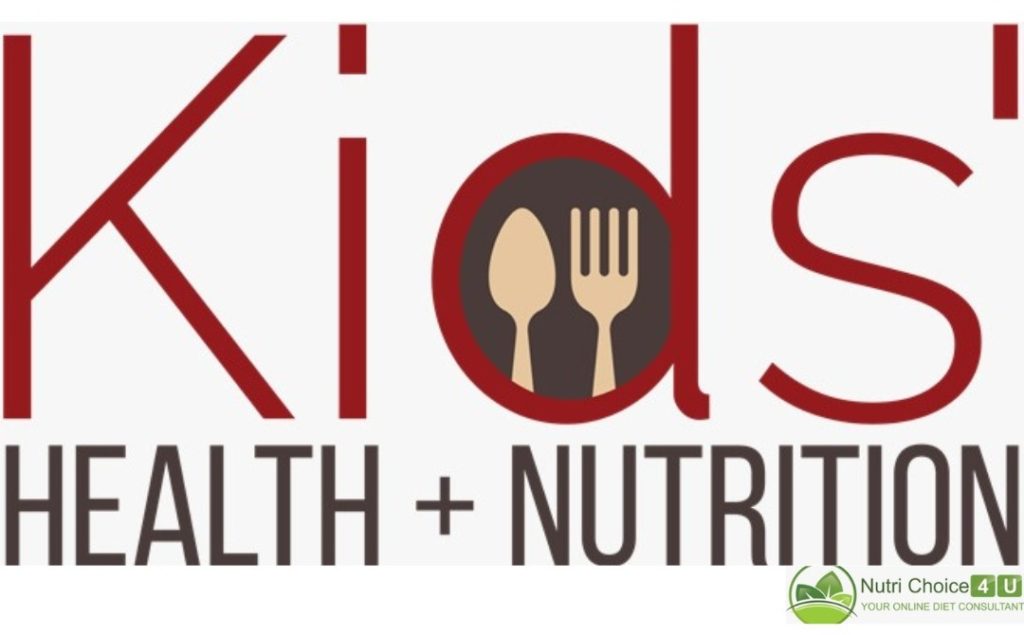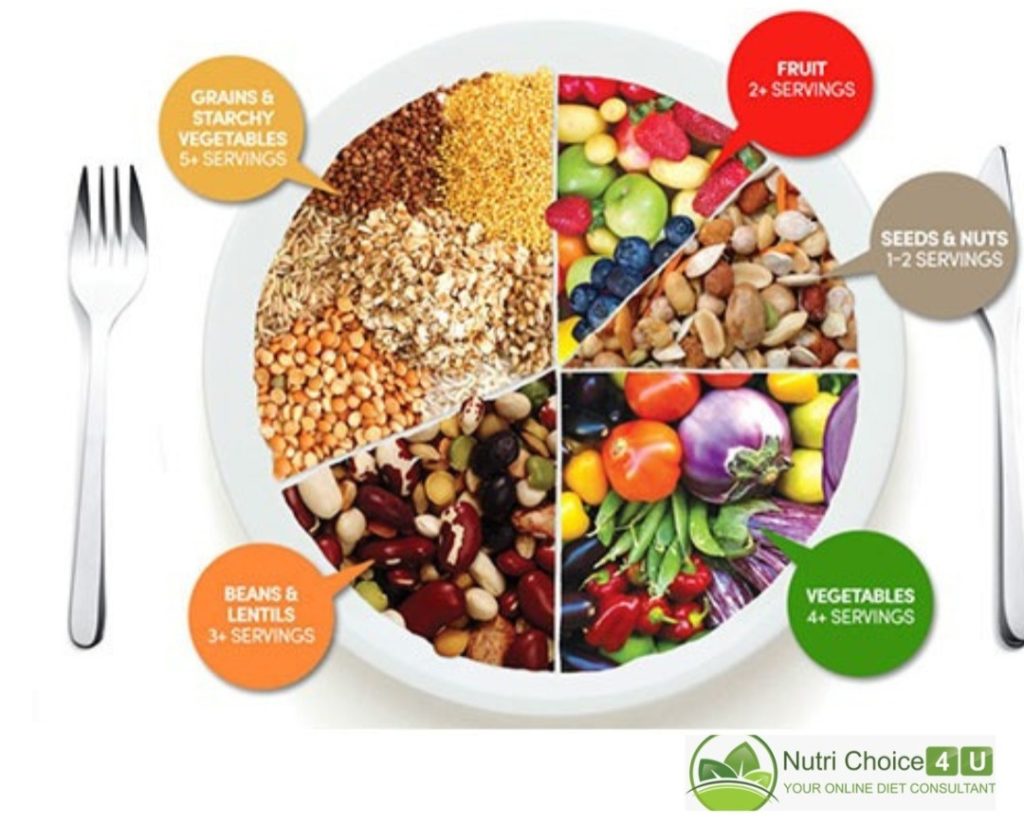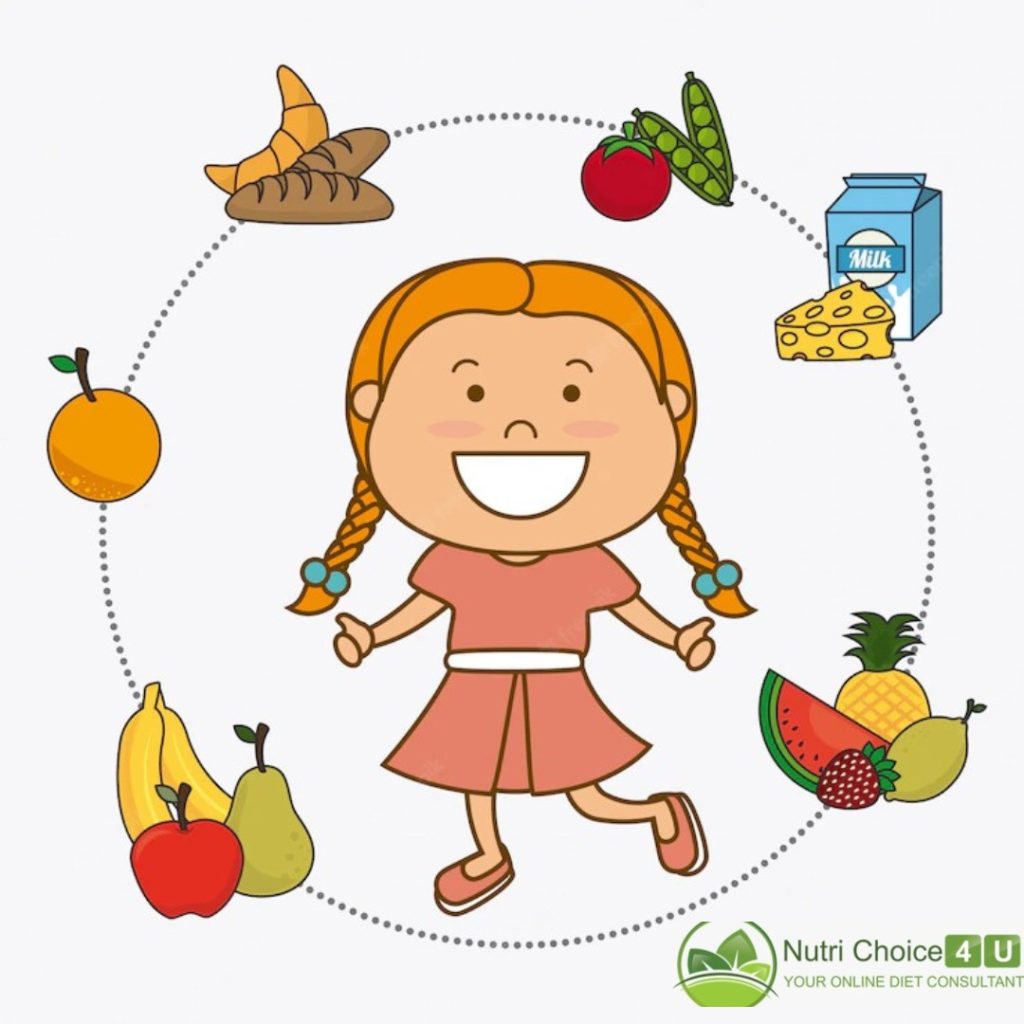Nutrition for kids is every parent’s concern these days. You won’t believe what it takes to feed kids healthy and nutritious food. As parents we want our kids to be active and smart in everything they do. Kids’ nutrition is not different from adults, it’s just the proportion and quantity of nutrients required at different stages of life varies. Everyone needs the same types of nutrients, such as vitamins, minerals, carbohydrates, protein and fat. These are called nutrients. Food & feeding are very important during this phase of life, not only to support physiologic growth & maturation, but for life long food related habits & attitudes.

What Are The Nutritional Needs Of A Child?
Energy: Carbohydrates are energy giving food. Energy from diet must be sufficient to ensure growth so that proteins are spared for their major body building function. Carbohydrates are obtained from millets, whole-grain cereals, fruits, juices, jaggery, honey, sugar etc

Protein: We all know that protein is the most important macronutrient for our kids’ physical development. Protein requirements for children not only include their basal losses, but in addition an allowance is also made for growth (muscle building, repairing wear & tear). Body-building food choose seafood, lean meat and poultry, eggs, beans, lentils, dals, peas, soy products, and unsalted nuts and seeds.
Fats: Requirement of fat is higher in kids as compared to adults as kids are growing physiologically at higher speed. It’s our duty as parents to give kids healthy form of fats i.e ghee, avocado oil, Seeds and Nuts. Do you know that brain development needs healthy fats and good quality protein along with energy giving foods?
Immunity-boosting foods: These include vitamins and minerals that protect our body from infection and disease. They help to build one’s immunity. They can be found in green leafy vegetables, fruits, eggs , nuts, fish, milk and any natural form of food available.
What Should A Child Not Eat?
I don’t know how and why all kids love eating sweet, sugary and packet foods? Is your child also obsessed with it? Children should not be consuming high amounts of refined sugar, too much salt, excess fats and refined flours. Chemical sweeteners and additives are to be avoided. As the organs are still in their growing stage, we can’t burden them with so many harmful substances that we get from packet foods.
High Amount Of Sugar: Let’s understand Natural Sugar and Modified forms of sugar. Naturally occurring sugars, such as those in fruit and milk, aren’t added sugars. Examples of added sugars include brown sugar, corn sweetener, corn syrup and honey. Avoid sodas and other drinks with added sugars. Limit juice servings.
Refined Carbohydrates: All breads, pastas, waffles, bagels, cereals are made from white sticky flour, which is really harmful for our digestive system,these grains lack fiber and micronutrients. So hence we conclude that whole grains, cereals and millets are better for our kids.
Salt: Salt is not good for anyone on this planet. So high salt intake in children also influences blood pressure and may predispose an individual to the development of a number of diseases including high blood pressure. Another name for salt is sodium. Salt can hide in sandwiches, where the sodium in bread, processed foods, such as pizza, pasta,chips often have high amounts of salt.

While we are talking about what we should be feeding our kids, we have to be careful that we are also setting them an example by following food eating practices around them. It is not possible that you eat junk, processed and packet foods and expect your children to not eat it. The best way is to avoid your indulgence also. You must have heard, “Monkey see, Monkey do”. If you are concerned about Nutrition for Kids, then
In my next article, I will be discussing the basic Do’s and Don’ts for our kids. So stay tuned. If you have any specific questions please put in comments. I will try and answer them in my next post.
RD Neha Kava
Latest posts by RD Neha Kava (see all)
- 3 Supplements To Try That Will Improve Your Health - March 15, 2025
- 3 Tips to Adding Supplements to Your Diet - March 14, 2025
- Beginners Running Tips – How to start getting in shape with the most efficient exercise out there - March 13, 2025



